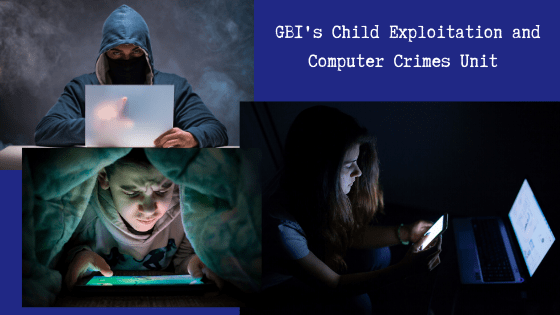When Georgia public schools ceased in-person instruction on March 16, 2020, the Georgia Bureau of Investigation’s Child Exploitation and Computer Crimes (CEACC) Unit, alongside other GBI regional offices, have executed 16 urgent search warrants relating to online child sexual exploitation. The CEACC Unit has also assisted other agencies in similar search warrants, resulting in 15 individual arrests for the possession, distribution, and/or production of child sexual abuse images including, in a few individual cases, charges for the associated crime of child molestation. In relation, the GBI CEACC Unit has rescued 8 children from situations in which they were sexually abused. Other previous child victims were identified, but the offender no longer had access to the child and some of the offenders indicated they had numerous undetected victims. Additional victims may be discovered as more interviews and digital forensic analysis of digital devices are conducted, leading to additional charges and arrests.
Amid the coronavirus pandemic and subsequent quarantine, there has been understandable concern that abused children will be at home and in closer proximity to abusers without contact with mandatory reporters such as teachers and school counselors. Due to stay-at-home orders, children have been using various social media applications, chat rooms, and various gaming platforms more frequently. Each of these platforms are prime locations for sexual predators to solicit inappropriate conversations with children.
While the CEACC Unit executes this mission daily, it is continuing to do so while schools are out of session to actively find and rescue children from dangerous and exploitative situations. Instances in which there is suspicion of child endangerment are acted upon immediately.
Through cyber-tips from the National Center for Missing and Exploited Children (NCMEC), the GBI CEACC Unit and the GBI-coordinated Georgia Internet Crimes Against Children (ICAC) Task Force can find children being sexually abused by working investigations involving child sexual abuse images. Most of these cyber-tips contain information reported to NCMEC by Internet service providers; the tips are often related to child sexual abuse imagery but include online enticement of children, sextortion, and sex trafficking. This content involves horrific sexual violence performed on young children, and the demand for this content leads to the creation of more material. This content remains online forever and the child is revictimized whenever the images are viewed.
GBI Special Agent in Charge and Commander of the Georgia ICAC Task Force Debbie Garner commented, “We are finding child victims of sexual abuse that we would not have otherwise known about by working these child sexual abuse cyber-tips from NCMEC – and we will not leave a child in danger.”
In 2019, the average number of cyber-tips received by the GBI from NCMEC was 600 per month, equating to the receipt of close to 7,100 cyber-tips in 2019. In March 2020 alone, the GBI received over 1,000 cyber-tips from NCMEC. In April 2020, the GBI received almost 1,400. By comparison, in April of 2019, the GBI received 587 cyber-tips. Nationally, NCMEC indicates a 106% increase in reporting when comparing numbers from March of 2019 and March of 2020. Cyber-tip numbers have consistently risen every year and, while this new surge in tips has not been confirmed to be as a direct result of the coronavirus quarantine and children being online more, it is certainly believed to be a factor.
In March and April of 2020, the Georgia ICAC TF made 49 arrests. In 2019, the Georgia ICAC TF made 474 arrests. The ICAC Task Force is comprised of over 250 local, state, and federal law enforcement and prosecutorial agencies, and is one of 61 ICAC Task Forces across the United States that work as a cohesive team. The ICAC Task Forces work to identify and arrest those involved in the child sexual abuse imagery production and trade. The ICAC Program, created by the U.S. Department of Justice, was developed in response to the increasing number of children using the Internet, the rise of child pornography, and the heightened online activity by predators searching for unsupervised contact with underage victims.
If you would like additional information related to Internet safety education and tips to keep children safe online, please visit www.netsmartz.org. If you suspect or have information related to the abuse or exploitation of a child, please call your local law enforcement agency and/or the National Center for Missing and Exploited Children at 1-800-THE-LOST or www.missingkids.org.
— Staff Reports




